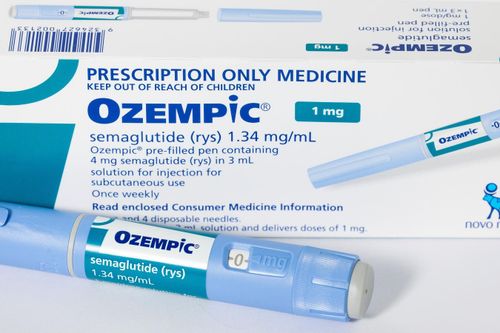Ozempic and Wegovy May Lower Risk of 42 Health Conditions in Landmark Study
Articles
Summary

Ozempic and Wegovy may boost health, from addiction to dementia
The first study to assess how weight-loss drugs affect the whole of human health has discovered an "eye-opening" impact on the body, researchers say. The analysis, involving about two million people, linked the drugs to better heart health, fewer infections, a lower risk of drug abuse and fewer cases of dementia. The US researchers also warned the drugs were "not without risk" and seemed to increase joint pain and potentially deadly inflammation in the pancreas. However, the results need very careful interpretation. Weight-loss drugs have exploded in popularity - but a full understanding of everything they touch in the body is still coming together. "This is new territory," said lead researcher Dr Ziyad al-Aly, clinical epidemiologist at Washington University. Initially, they were a proven treatment for type 2 diabetes. Then, weight loss was noticed as a significant side-effect - and Ozempic and Wegovy became household names.
Left
BBC News
Scientists say drugs like Ozempic and Wegovy 'could slash risk of 42 conditions'
Weight loss injections like Wegovy have been hailed as ‘wonder-drugs’ with the potential to protect against heart attacks and strokes, but now a new study shows they could have some unlikely benefits. Demand has rocketed for the drugs, with 500,000 Brits currently taking treatments for obesity or diabetes such as Ozempic, Mounjaro and Wegovy, according to one of the biggest online sellers of the medications, Simple Online Pharmacy. The study used data on US veterans with type 2 diabetes, some of whom were given Ozempic or Wegovy and some more standard drugs - to measure their effect on 175 other illnesses. There appeared to be a significant boon to heart health, with lower levels of heart attacks, stroke, heart failure and high blood pressure, in those taking the new weight-loss drugs. They also cut the risk of substance abuse (including alcohol, opioids and cannabis) as well as reducing schizophrenia, suicidal thoughts and seizures. Despite the study being short, and people taking the drugs for only 3.5 years because of how new they are, it reported a 12% reduction in Alzheimer's disease. There was also less liver cancer, muscle pain and chronic kidney disease as well as a noted reduction in bacterial infections and fever.
Middle
Manchester Evening News
Weight loss jabs may cut risk of silent killer brain disease, study finds
“Our findings underscore the possibility for wider applications for these medications but also highlight important risks that should be carefully monitored in people taking these drugs.”Professor Sir Stephen O'Rahilly, an expert in clinical biochemistry and medicine at the University of Cambridge who was not involved with the research, said such studies needed to be “interpreted very cautiously”. Dr Al-Aly said: “Interestingly, GLP-1RA drugs act on receptors that are expressed in brain areas involved in impulse control, reward and addiction - potentially explaining their effectiveness in curbing appetite and addiction disorders. He added: “The people studied have not been randomly allocated to GLP-1 receptor agonist treatment, so any difference between those taking and not taking the class of drug could potentially be attributable to factors other than the drug. Dr Al-Aly said: “GLP-1RA drugs can have broad health benefits.
Right
Daily Express
Ozempic, Wegovy Have 'Eye-Opening' Effects on Health
Scientists find GLP-1 drugs lower risk for dozens of other conditions—but there are caveats. The new research looked at medical records of 2 million VA patients with Type 2 diabetes. The scientists tracked subjects for 3 1/2 years or so and found a decreased risk of dozens of conditions.
Left
Newser
Weight-Loss Drugs Like Ozempic Linked To Lower Risk Of 42 Conditions
Scientists probing the health records of nearly 216,000 people with diabetes who took the GLP-1 receptor antagonists found they had a lower risk of 42 conditions than people on other forms of treatment. Some results, like reduced risk of cardiovascular disease and increased chance of nausea and vomiting, were expected. But others, like a lower chance of bacterial infection and an increased risk of joint pain, took researchers by suprise.
Middle
ForbesENTERTAINMENT
Jason Statham's 'A Working Man' Takes Box Office Crown as Disney's 'Snow White' Sinks 66% in Second Weekend
Updated: 2 days ago
Articles
Summary
ENTERTAINMENT
'Get Me to God's Country': Morgan Wallen Sparks Controversy by Exiting SNL Stage Early
Updated: 2 days ago
Articles
Summary
ENTERTAINMENT
Richard Chamberlain, Legendary Star of 'Shogun' and 'Dr. Kildare', Dies at 90
Updated: 3 days ago
Articles
Summary
ENTERTAINMENT
Rapper Young Scooter Dies at 39 After Fleeing Police and Suffering Fatal Leg Injury
Updated: 3 days ago
Articles
Summary
ENTERTAINMENT
Dua Lipa Wins 'Levitating' Copyright Lawsuit as Judge Rules No Infringement
Updated: 4 days ago
Articles
Summary
























































































































